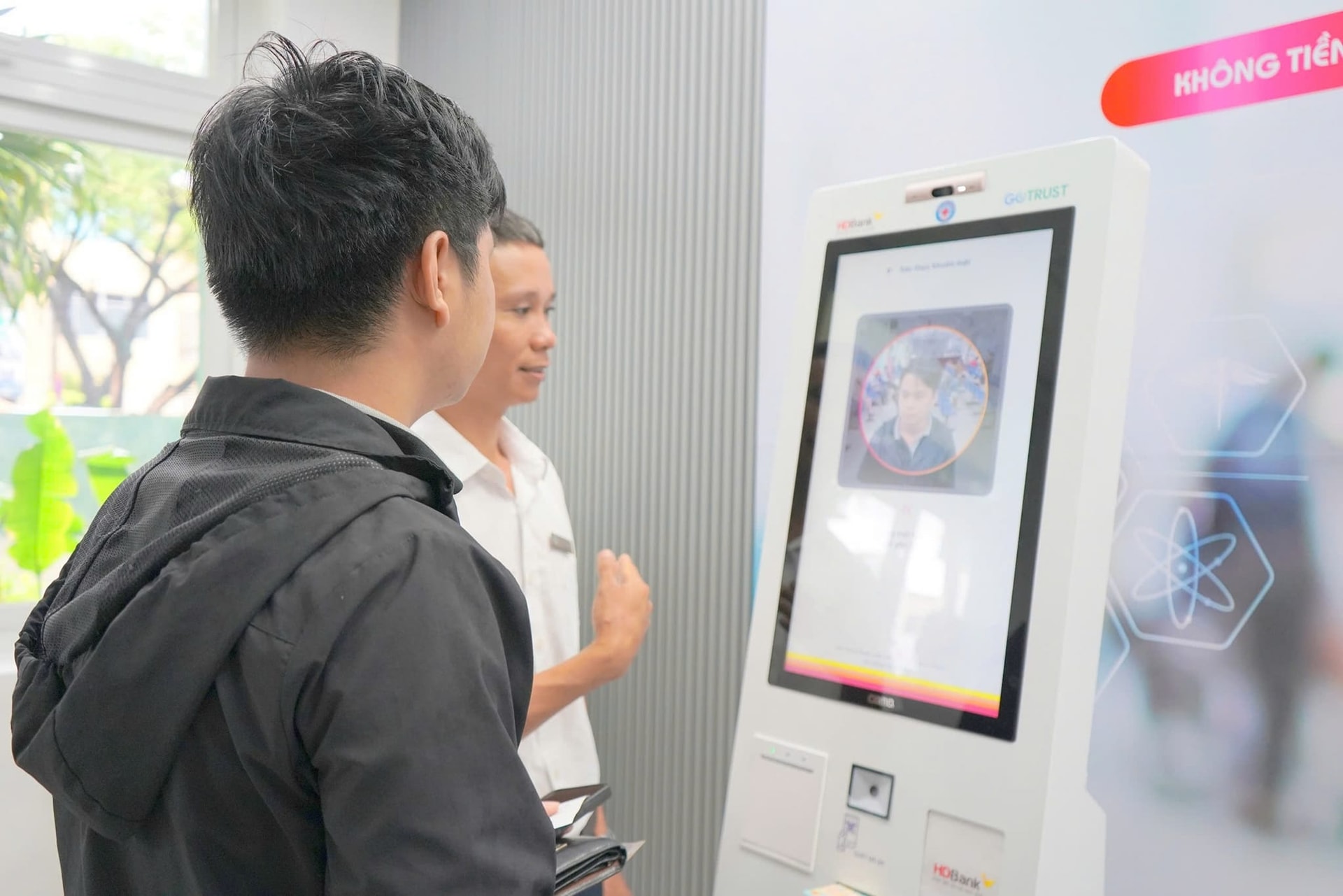
From specific experiences, Da Nang is gradually realizing the goal of building a smart and modern healthcare system.
Improve service quality
Feeling numb and swollen in her limbs, Mrs. Tran Thi Hoa (70 years old, resident of Hai Chau ward) went to Da Nang Hospital for a check-up. As usual, she carefully brought a small bag containing her ID, medical records, old prescriptions and health insurance card.
However, contrary to her worries, the medical staff only needed to scan the QR code on the insurance card, and all the data from previous examinations immediately appeared on the screen. Her test results, prescriptions, and treatment history were all fully stored by the hospital, making it easy for the doctor to monitor and diagnose the cause of the disease.
While waiting for his mother to return for a check-up, Mr. Nguyen Xuan, Mrs. Hoa’s son, went to the smart medical kiosk to check in for an eye exam. Here, it took him less than a minute to complete the registration using facial recognition technology that integrated data from the chip-embedded citizen ID card. The medical examination information, queue number and examination room were displayed on the screen and sent to his smartphone.
From 2024, Da Nang Hospital will deploy 2 smart medical kiosk systems, located in the examination area. People can register for examination and payment by citizen identification card or VssID, VNeID software or using facial recognition technology. Notably, this information will be stored throughout the registration and subsequent medical examination and treatment process.
According to Dr. Le Duc Nhan, Director of Da Nang Hospital, this is one of the digital transformation solutions to shorten waiting time, proactively receive information, track patient examination history and promote cashless payment.
In the context of increasing patient numbers, digital transformation solutions help save time and increase satisfaction in medical examination and treatment at hospitals. Instead of crowding at the reception desk or fee collection area, patients are divided into streams and all operations are automatically recorded by the system.
“More importantly, patient data is synchronized and secured, greatly supporting doctors in monitoring, diagnosis and treatment,” Dr. Nhan emphasized.
At Son Tra Regional Medical Center, digital applications are deployed synchronously. Dr. Ngo Van Dinh Hoai, Director of Son Tra Regional Medical Center, said that the application of QR codes is a breakthrough in the current reform of health administration at the ward and commune levels.
According to him, for each prescription from a doctor, the system will automatically generate a transaction code equal to the cost of the service incurred. People can pay right at the clinic, without having to return to the counter. This both shortens waiting time and ensures transparency in revenue and expenditure management.
People-centered digital transformation
The digitalization roadmap of the Da Nang healthcare sector also aims to connect data between medical facilities. People who visit any hospital or medical center in the area can quickly access their electronic health records, medical history, and test results. This avoids repeating test orders to save time and costs for patients.
According to the Department of Health, the city is implementing the project "Developing smart healthcare in Da Nang", with a budget of more than 488 billion VND, expected to be completed in 2030. The project focuses on 6 key groups of tasks such as developing electronic medical records; a national health record system; remote medical examination and treatment applications; digitalizing medical examination and treatment processes; deploying a non-cash hospital fee payment platform; building a smart healthcare operations center to serve overall management and coordination.
With the determination to form a smart healthcare ecosystem, hospitals and medical centers in Da Nang have been focusing on improving the quality of healthcare services and ensuring equity in access to healthcare. This is one of the important pillars for Da Nang to move towards the goal of becoming a smart city by 2030.
Ms. Tran Thanh Thuy, Director of the City Department of Health, said that the health sector is gradually building digital human resources through recruitment, training and professional development in the direction of mastering new technology. Along with that, it will continue to cooperate with technology enterprises and telecommunications units to develop digital infrastructure and secure data systems that can be flexibly expanded in the future.
AI solutions in image diagnosis, medical record data analysis, or early warning systems for epidemics based on big data are also being researched and tested. This orientation contributes to improving the quality of health care, opening up opportunities for Da Nang to become a pioneer in developing smart healthcare models in Vietnam.
The implementation at medical facilities in the city shows that the application of digital technology helps reduce patient waiting time by at least 30%, while increasing the accuracy in managing medical records. This is also the foundation for Da Nang to gradually form a smart medical center in the Central Highlands region, with the ability to connect big data (Big Data), AI in analyzing, forecasting epidemics and supporting treatment decisions.
Source: https://baodanang.vn/da-nang-huong-den-he-thong-y-te-thong-minh-3304881.html






![[Photo] Deep sea sand deposits, ancient wooden ship An Bang faces the risk of being buried again](https://vphoto.vietnam.vn/thumb/1200x675/vietnam/resource/IMAGE/2025/11/13/1763033175715_ndo_br_thuyen-1-jpg.webp)













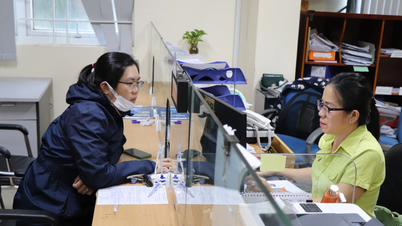










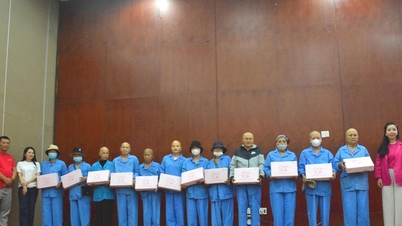


























































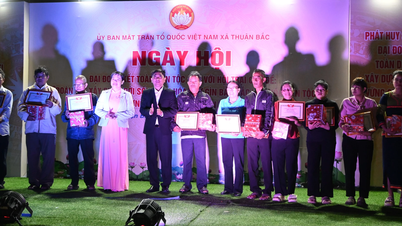






![Dong Nai OCOP transition: [Article 3] Linking tourism with OCOP product consumption](https://vphoto.vietnam.vn/thumb/402x226/vietnam/resource/IMAGE/2025/11/10/1762739199309_1324-2740-7_n-162543_981.jpeg)




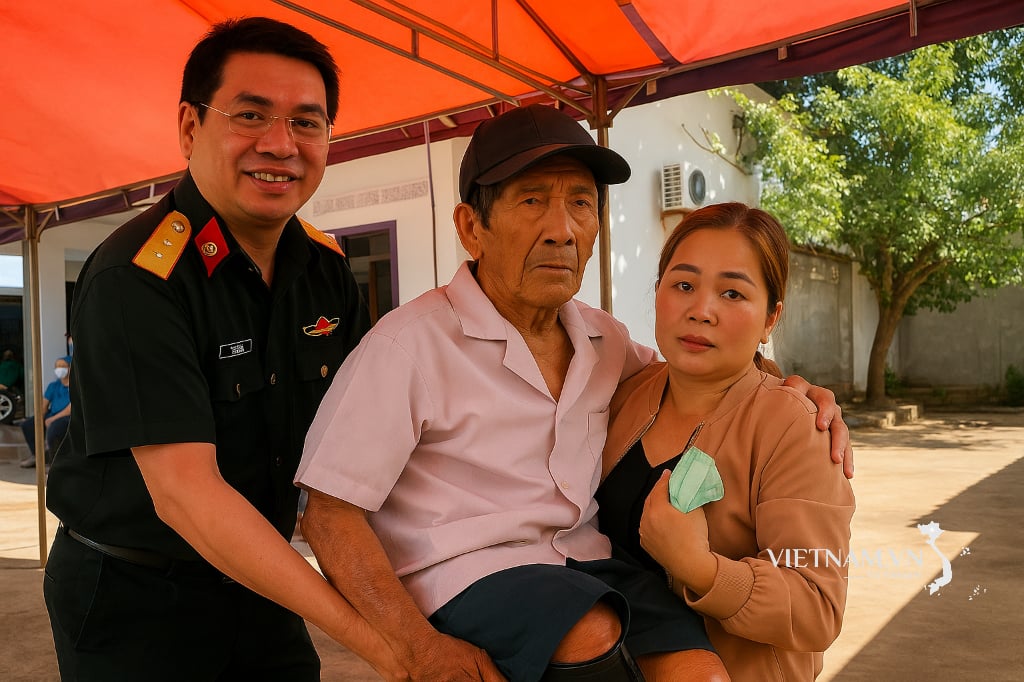


Comment (0)